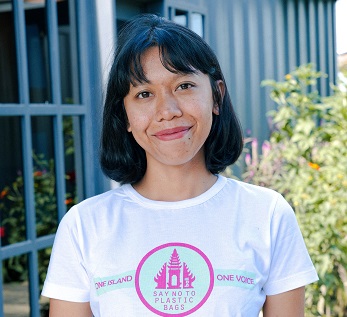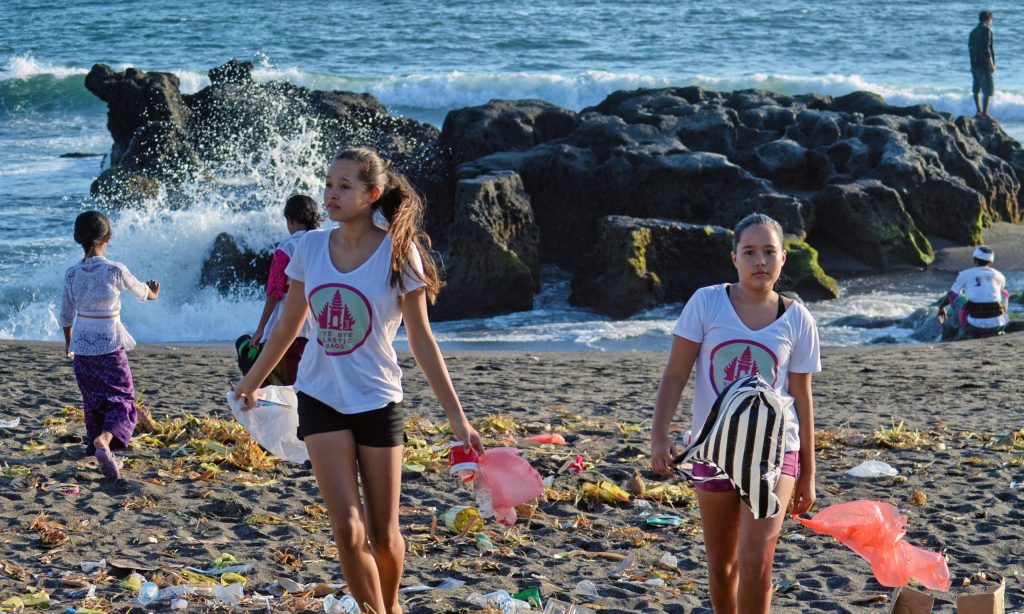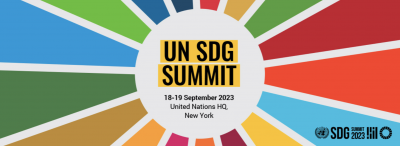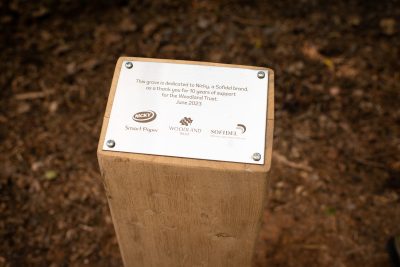Bye Bye Plastic Bags was started by young Indonesian climate activists Melati and Isabel Wijsen to raise public awareness in Bali and beyond against single-use plastic bags. “It has become a global movement,” Dara Datita Ginting, Global Team Leader, tells Future
Born in Bali, Indonesia, to Dutch and Indonesian parents, Melati Wijsen was 12 years-old, and her sister Isabel was 10 when they established Bye Bye Plastic Bags in 2013. Sickened by the sight of plastic bags constantly washing up on the otherwise unspoiled shores of their beautiful ‘Island of the Gods’, they decided they could play their part in starting a campaign to rid Bali of single-use plastic bags. From organizing annual mass beach clean-ups, to staging hunger strikes and using the stages provided by TED, CNN and the United Nations among others, the young ladies – and their organization –have proved to be a force to be reckoned with.
Nine years later, Bye Bye Plastic Bags is now an international NGO, with 60 locations in 30 countries around the world led by teams of young people burning with the mission to rid, not just Bali, but the world of single-use plastic. One of those leaders is Dara Datita Ginting, who first followed Melati Wijsen on Instagram eight years ago, before joining the organization in 2021, becoming Global Team Leader earlier this year.
“Bye Bye Plastic Bags is a social initiative driven by youth to get people around the world to say ‘no’ to single-use plastic bags,” says Ginting. “The numbers keep growing.”
The mission is nowhere near done though, says Ginting. “Single-use plastic is everywhere. It harms the environment and it’s not also good for human health – there are micro-plastics in our bodies, not just in the bottom of the oceans and in our rivers. But we believe that education can happen everywhere too. You cannot solve the problem if you do not know the solution, so we raise awareness and educate about how harmful plastic is to our environment, our animals, and to us humans.”
Bye Bye Plastic Bags volunteers and team members, including Ginting, stage school presentations in Bali and overseas, showing local children how they can make a difference. “We distribute our educational booklets, which have fun activities and puzzles in them. Education is our first pillar.”
Collaboration and working with the Mountain Mamas
The second pillar is focused on lobbying and campaigning. “When we do Bali’s big beach clean-up every year, we use one voice,” says Ginting. “We get all of the NGO community and the video companies to join us to clean five regions of Bali in one day, every February. We can gather around 4,000 people in 130 locations.”
“Bye Bye Plastic Bags is a social initiative driven by youth to get people around the world to say ‘no’ to single-use plastic bags. The numbers keep growing”
Dara Datita Ginting
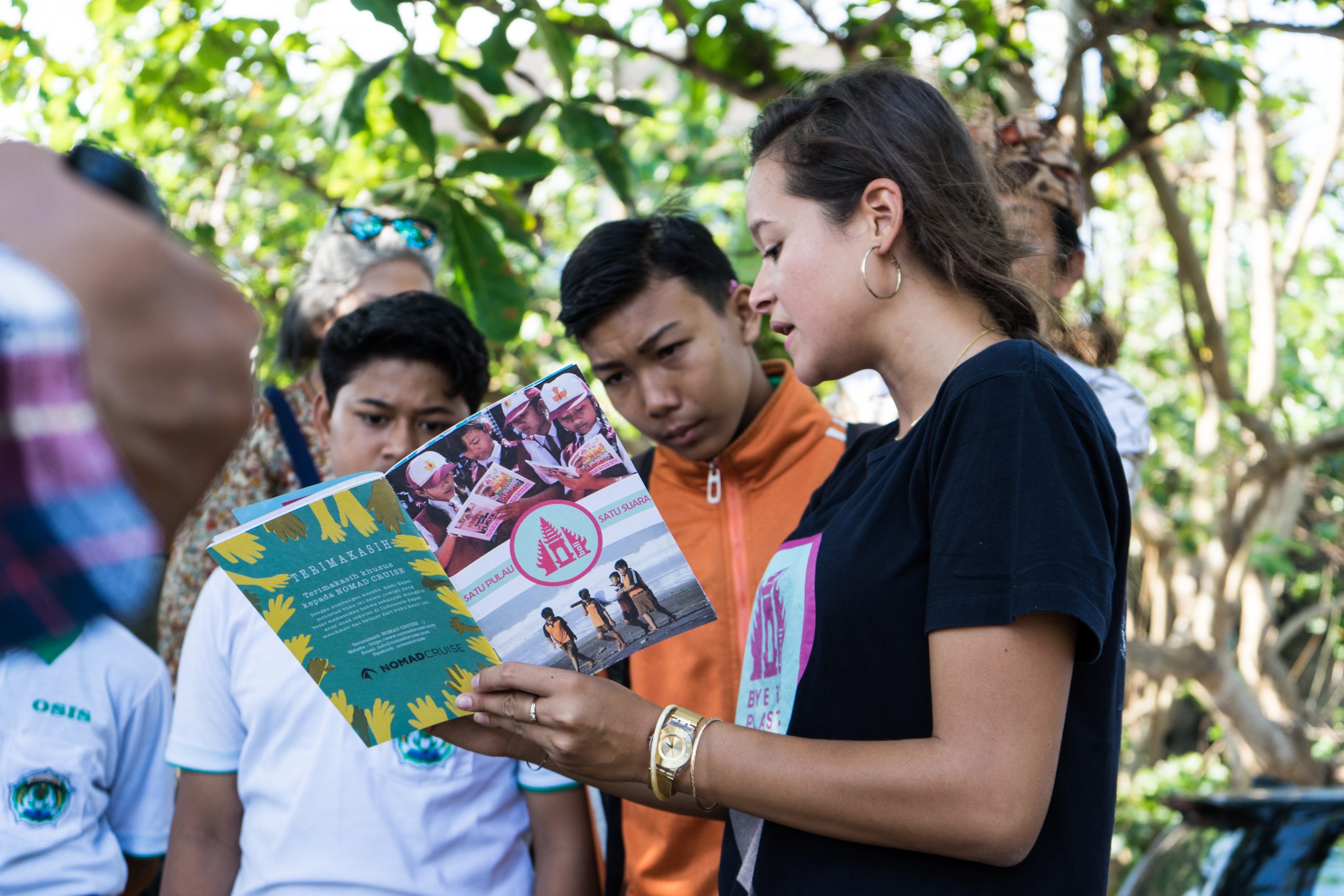
The organization works closely with local waste management companies, selecting which plastics can be recycled and which can be re-made into new household objects, such as chairs. “We cannot do this alone. Collaboration is the key for every project. We also connected to businesses, such as restaurants and hotels, speaking to them about ending single-use plastics. We approach them to sign a pledge of the commitment to eliminate single-use plastics step-by-step in their businesses,” says Ginting.
Bye Bye Plastic Bags also produce a Sustainable Guidebook, showing tourists to Bali where to find alternatives to plastics. Another initiative is an empowering social enterprise movement called Mountain Mamas. It sees the organization provide sewing equipment for woman in the Mount Batukaru region of Bali to create alternative bags from different materials, including hotel bedsheets and discontinued garment stocks. “We give a second life to those materials and make bags that are really beautiful. We train our Mountain Mamas to create these bags – they all have their own signatures.” Those bags are sold, thus supporting the village communities and crucially – also reducing single-use plastic in the process.
Ginting is from North Sumatra and first got inspired about Melati and Isabel’s campaigns in Bali when she saw their Instagram posts while studying for her psychology degree. She worked for another NGO in the field of plastic pollution, educating local school children in Bali’s surrounding islands. Today, she continues to give presentations to Bye Bye Plastic Bags’ volunteers and host workshops.
The young and the restless
Melati Wijsen recently founded a new youth empowerment project, Youthtopia, having united young, likeminded changemakers and activists around the world. “Her persistence and commitment to do all of the hard work and achieve her goals and make a better world and environment for us – I get inspired every day by her,” says Ginting.
So, what does the future look like for Bye Bye Plastic Bags? “We envision a world that is plastic-free,” says Ginting. “But we are very specific with our own mission of ridding the world of single-use plastics, because plastic is a really complex problem.”
Ginting is optimistic of achieve those aims “100%” but reiterates that “we cannot do it alone. We need to do this as a collaboration with all of the stakeholders, such as government organizations and producer companies,” she says.
One important aspect, says Ginting, that people sometimes forget, is “they also have the power in their own selves. When you start taking action and commit to reducing plastic bags one bag at a time, every day, it becomes a massive a ripple effect. The powerful way is to stop using plastic – to refuse it, not to recycle it. Right now, in Indonesia, we are the second most polluted country in terms of plastic bags after China. It’s everywhere. So, we must work together. We must start thinking about how we can make a difference. Individuals can feel overwhelmed, because you think you are doing this alone, but actually, there are people everywhere thinking about the same problem, and they also want to make solutions. From that knowledge we can start taking real action.”
Further details:
For more information, please visit www.byebyeplasticbags.org
